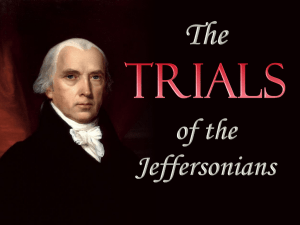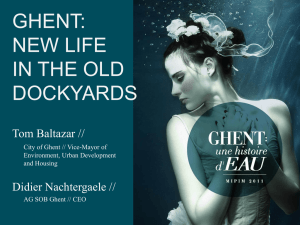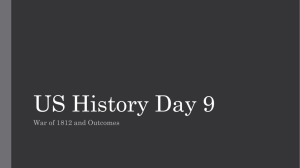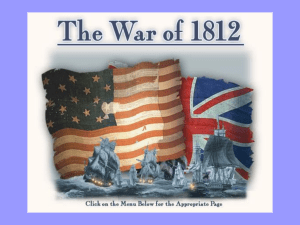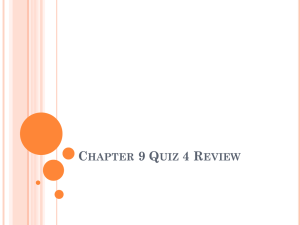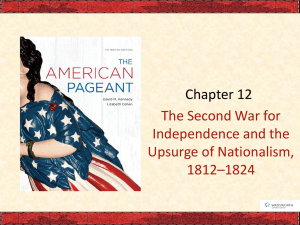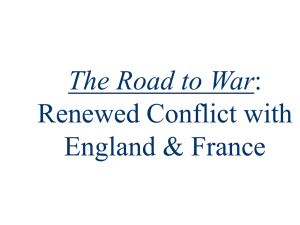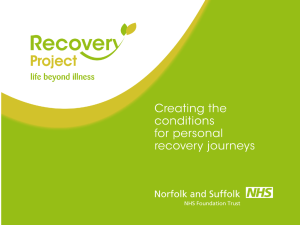EUniverCities
advertisement
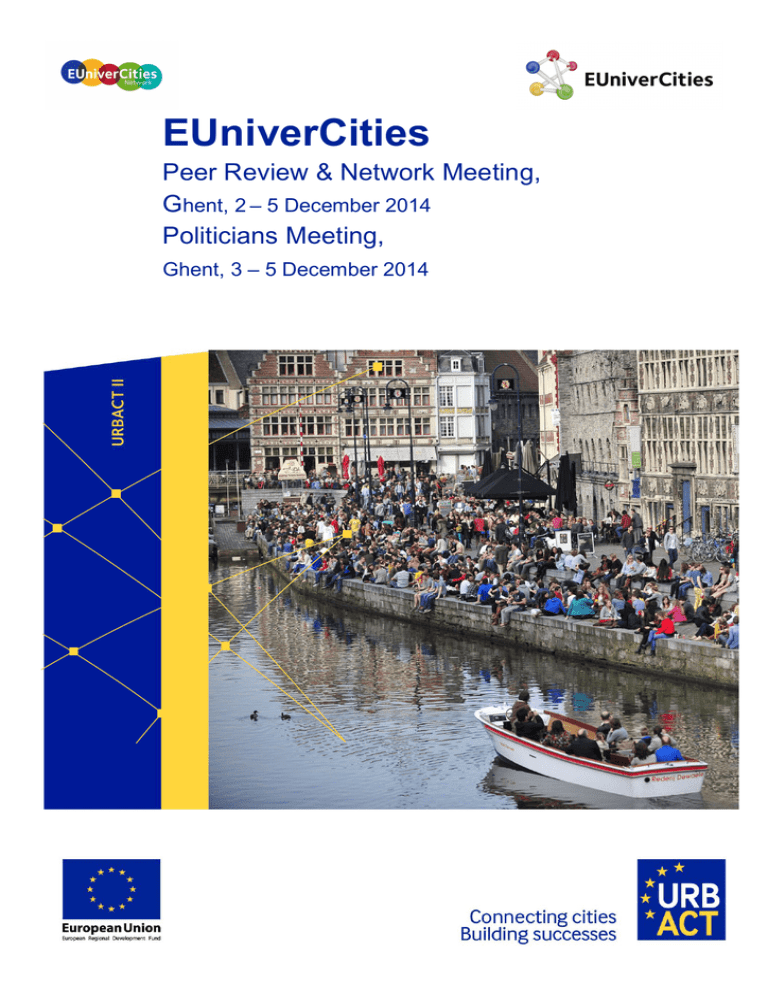
EUniverCities Peer Review & Network Meeting, Ghent, 2 – 5 December 2014 Politicians Meeting, Ghent, 3 – 5 December 2014 2 PROGRAMME STUDENTS & PUBLIC SPACES Introduction Ghent is the second-largest city in Belgium with a population of about 250 000 inhabitants of no less than 159 different nationalities. It is a historical medieval city, yet contemporary and dazzling, presenting art and culture of the highest quality. When describing our city we like to use the words of the city consultant Charles Landry, who invented the concept of the Creative City: ‘Ghent is a “pocket sized metropolis”, combining the intimacy of a small city with the openness of a metropolis’. The city of Ghent has an excellent reputation as a ‘city of knowledge and culture, accessible to anyone’. The city has an important sea port and the largest Flemish student community, thus offering an ideal environment for the creation of innovative technology. Though it may be strange for a city located inland but due to an artificial canal Ghent has an important sea port. The economic structure of the city is largely determined by the Port of Ghent, providing almost 30,000 direct and 40,000 indirect jobs. Ghent holds a strong scientific reputation in the field of biotechnology, bio-energy and ICT and has become the driving force behind ‘Flanders Biotech Valley’. The ‘Ghent Bio-Energy Valley’ in the Port of Ghent emphasises the ambition to become an internationally recognized growth centre of renewable energy and industrial bio-energy projects. Many Belgian and foreign students rightly consider Ghent as thé place to be! More than 70,000 students are registered at Ghent University and the university colleges of Ghent. This amazing knowledge activity is a major source of economic growth. 3 The unique combination of first-class education and many leisure activities makes that the student population is still growing every year. With the presence of two universities and four university colleges, Ghent is able to offer a wide range of study opportunities. The university campuses have historically emerged across the city, which is known to be an important asset of the student life in Ghent. The students live all over the city and hence enliven the atmosphere. The role and significance of the presence of these HEI’s and their students is not to be underestimated. They influence in a great way the life in the city: housing culture, mobility, night life, cultural life, street image… However, besides this they also give a huge boost to the economic and creative life in the city. Many students stay in Ghent after their studies and many of them also start their own creative business. As stated in the Baseline Study, Ghent considers it as a major challenge for the city and its HEI’s to manage the growth of Ghent as a city of students, research and innovation. Currently, there is a lack of space for research, for student housing, and for innovative business. Moreover, there is no reason to believe that the pressure will decrease in the (near) future. This challenge requires an integrated and sustainable approach and joint efforts involving all stakeholders. In the framework of the EUniverCities URBACT-project, the Local Support Group (LSG) intends to elaborate a longterm shared vision and a strategy for managing growth in a sustainable way. It goes without saying that the availability, today and in the future, of space is a crucial element for a city that embraces the knowledge economy. In addition, it is a specific challenge in the cooperation between the city and its HEI’s. During the LSG meetings many themes have emerged that urgently require a joint vision, such as the management of semi-public and public spaces, mobility and parking policy, touristic and cultural upgrading. Because of the wide range of themes the LSG decided to establish 6 working groups: (1) use and management of public and semi-public spaces, (2) student and image (including communication and co-creation), (3) student housing, (4) mobility, (5) culture and tourism and (6) structural cooperation between city and HEI’s. The LSG monitors the integrated approach of all these different themes and ensures that a solution in one field will not create a problem in another one. In defining an integrated and efficient approach the core team of the LSG decided to choose for a geographic delineation to work on a joint vision and a local action plan with actions emerging from the working groups. The ‘Arts district’ is a district in the city center where most of the students are living and where most of the campuses are located. As a cross-section of the wider city the district forms an excellent laboratory for elaborating a vision on how to manage the growth of Ghent as a city of students. In the district you can really sense what kind of city Ghent is due to the presence of so many students and you can also experience the challenges that a large student population entails. 4 Programme URBACT-meeting and questions for peer review The overall theme of the meeting in Ghent is ‘students & public spaces’. On Wednesday we will start with an opening session with general facts & figures and introduce the local challenges in Ghent and the approach and work of the LSG. During the programme we will walk through the ‘Arts district’ and we will stop at several locations where some themes of the working groups of the LSG will be introduced, such as student housing, mobility and student and image. During every interactive session we will provide some time for questions and answers. During the peer review session on Thursday afternoon we want to discuss into detail the challenges and questions where one of the working groups is confronted with and that have connections with the other themes of the different working groups. The ‘use and management of public and semi-public spaces’ is a very important issue in a district where there is a lack of space and where so many students and others (like residents, tourists,…) use the scarce public spaces. The shared use of space in the Arts district includes two aspects: 1. The problem of dichotomy between private space and public space (private space of the HEI’s that can be opened for public use or public space that can be transformed into public space for some groups only e.g. car free area for students and residents), 2. The degree of appropriation of space by different groups (students, residents, tourists, users,…) The questions to the experts deal with both design, implementation and management of shared/jointly space. In addition, the City of Ghent has high ambitions for greening in terms of climate adaptation and for creating a pleasant microclimate in this urban environment. We want to apply the questions on a number of interesting cases that we will visit during our walk through the Arts district. (e.g. The ‘Overpoortstraat’ is a street with many bars that is only used by students but this street is also the connection between the museum site and the city center). Concrete questions peer review: 1. How do we determine with all the players the level of ambition for the use of shared space? What social and physical factors play a role in ensuring a good / optimal division of space. What conditions play a stimulatory or inhibitory role? How can we reach our goals for greening in these shared spaces? 2. How do we maintain the stated ambition in the implementation? How do we ensure that those involved are committed to also realize the ambition in the implementation? How do we involve stakeholders in the implementation (and later management)? What forms and management tools can we use for this? 5 3. How do we monitor the ambitions of shared / jointly space after the realization and after a somewhat longer term? How do we avoid a too strong appropriation by one of the user groups? Or how do we avoid that the public space becomes too strong privatized and that the private space becomes too public? In other words, how can we search for ‘balance’ and an interweaving of functions for the different users? We look forward to welcoming experts from the cities and educational institutions who want to share their knowledge and expertise on urban planning and design and management of public, semi-public and private space for public use. 6 Programme Tuesday, 2 December Arrival of European guests When you will check-in in one of the hotels that are recommended (see practical information) you will receive an information package with all relevant material that you will need during the meeting (programme, maps, groups peer review sessions,…). 13:00 – 14:00 Lunch for participants sub-thematic network meeting, Restaurant Keizershof, Vrijdagmarkt 47 (at own costs) Sub-thematic network meeting, Youth Service, Kiosk room, Kammerstraat 10 14:00 – 18:00 18:30 – 18:40 18:40 – 19:00 19:00 – 20.00 20:00 – 22:30 22:30 – 22:45 Guided walk from hotels to Korenlei Boat trip from Korenlei to Bijlokesite Welcome reception, STA.M, Ghent city museum, Bijlokesite, Godshuizenlaan 2 Host: Deputy Mayor City of Ghent, Ms Elke Decruynaere Welcome dinner, Bistro Bijloke, Bijlokesite, Bijlokekaai 7 Guided walk to city center Wednesday, 3 December Presentations and Site Visits On the first day of the Peer Review & Network Meeting the City of Ghent, together with Ghent University, the University Colleges Arteveldehogeschool and Hogeschool Ghent and the Vooruit Arts Centre will present the problem statement through various presentations and site visits. 08:30 – 08:45/09:00 Guided walk from hotels to Vooruit Arts Centre, SintPietersnieuwstraat 23 TIME 08:45 – 09:05 09:05 – 09:15 ACTIVITY Registration and coffee Opening and Welcome 09:15 – 09:25 EUniverCities: expectations for the meeting 09:25 – 10:15 Opening session – Introduction LSG Ghent Cooperation within LSG Ghent With time for Q&A 10:15 – 10:30 Testimonial ‘student life in Ghent’ Coffee break Presentation unique collaboration project between different levels of government 10:30 – 10:50 10:50 – 11:10 SPEAKER / LOCATION Vooruit Arts Centre, foyer theatre room Mr Jeroen Vanden Berghe, Chief Logistics Administrator, Ghent University Mr Patrick van Geel, Advisor, European Affairs, City of Delft Mr Willem van Winden, Lead Expert, Urban IQ Mr Luc Rogiest, Local Support Group coordinator, City of Ghent Mr Gijs Coucke, International Relations Office, Ghent University Ms Inge Willemsen, International Cooperation, City of Ghent Ms Donikë Qerimi, PhD Candidate in Private International Law, Ghent University Vooruit Arts Centre, foyer theatre room Mr Stefaan De Ruyck, General Manager Vooruit Arts Centre, Secretary of the SCRL Board of Directors of ‘De Krook’ 7 11:10 – 11:15 11:15 – 11:55 11:55 – 12:00 12:00 – 13:00 13:00 – 13:30 13:35 – 13:45 13:45 – 15:00 15:00 – 15:30 15:30 – 16:00 16:00 – 17:00 17:00 – 17:10 17:10 – 17:40 Walk from Vooruit Arts Centre to winter circus Mahy Visit winter circus Mahy with view on the construction yard of ‘De Krook’ Walk from winter circus Mahy to Vooruit Arts Centre Lunch Vooruit Arts Centre, foyer theatre room Guided walk through Arts district Presentation Booktower Ms Sylvia Van The Booktower, Peteghem, Chief University Library librarian Ghent Ghent, Rozier 9 University Presentation case street Mr Michiel Dehaene, professor Faculty of ‘Rozier’: cooperation within Engineering and Architecture, Department working groups ‘shared space’ Architecture and Urban Planning, Ghent and ‘mobility’ University Ms Loesje Van Damme, Mobility Student contest With time for Q&A Department, City of Ghent Mr Tobias Van Speybroeck, Mr Bram Denkens and Mr Thomas Mertens, all three graduated as engineer-architect from the Faculty of Engineering and Architecture of Ghent University Guided walk through Arts district Coffee break Artevelde University College, Campus Kantienberg, Voetweg 66 Ms Hilde Reynvoet, Head of the Housing Presentation cooperation within working group ‘student Service, City of Ghent housing’ With time for Q&A Reflection on first day Mr Willem van Winden, Lead Expert, Urban IQ Guided walk through Arts district, end point City Hall Start programme Politicians Meeting, 3 – 5 December Combined programme with participants Peer Review & Network Meeting, only separate programme on Thursday afternoon. 18:45 – 19:00 19:00 – 19:45 19:45 – 20:00 20:00 – 22:30 Guided walk from hotels to City Hall Welcome Reception, City Hall, Botermarkt 1 Hosts: Mayor City of Ghent, Mr Daniël Termont and Rector Ghent University, Prof. Dr. Anne De Paepe Guided walk to dinner location Dinner, Restaurant Salons Carlos Quinto, Kammerstraat 20 Hosts: Mayor City of Ghent, Mr Daniël Termont and Rector Ghent University, Prof. Dr. Anne De Paepe 8 Thursday, 4 December Presentations and Peer Review Sessions On the second day of the Peer Review & Network Meeting all the participants will follow an interactive session from the working group ‘student and image’. After the lunch the participants of the Politicians Meeting will move to the City Hall to have the ‘network politicians meeting’ and all the other participants will stay in ‘Het Pand’ and will work into detail on the questions mentioned in the introduction of this programme during the Peer Review sessions. 08:30 – 08:45/09:00 TIME Guided walk from hotels to student house ‘De Therminal’, Hoveniersberg 24 ACTIVITY SPEAKER / LOCATION Participants Peer Review & Network meeting and participants Politicians Meeting 08:45 – 09:05 09:05 – 09:15 09:15 – 10:30 10:30 – 10:50 10:50 – 11:20 11:20 – 11:40 11:40 – 12:15 12:15 – 13:30 Registration and coffee Introduction – reflection on first day Presentation and interactive session on ‘student and image’ – communication, student engagement and student participation De Therminal, plenary room Mr Willem van Winden, Lead Expert, Urban IQ Ms Anneke Vanden Bulcke, Student Officer, City of Ghent Ms Els Uytterhoeven, Officer City Marketing, City of Ghent Mr Ruben Dobbelaere, Head Office of Student Support and Office of Study and Career Guidance, Artevelde University College Mr Jelle Heyvaert, President of Ghent Student Council Coffee break Presentation ‘co-creation in public spaces’ Ms Evelyne Deceur, PhD candidate, Department of Social Welfare Studies, Ghent University Wrap-up Mr Willem van Winden, Lead Expert, Urban Time for Q&A IQ Boat trip to lunch location via historic part of the city Lunch Ghent University, Het Pand, Onderbergen 1 Participants Politicians Meeting 13:30 – 14:00 14:00 – 14:10 14:10 – 15:30 15:30 – 16:00 16:00 – 17:30 Guided walk to City Hall, Austrian room Mr Daniël Termont, Mayor City of Ghent Welcome Mr Bas Verkerk, Mayor City of Delft-tbc Politicians meeting part 1 Mr Willem van Winden, Lead Expert, Urban IQ Mr Luis de Carvalho, PhD Erasmus University Rotterdam. Urban IQ Coffee break Politicians meeting part 2 Mr Willem van Winden, Lead Expert, Urban IQ Mr Luis de Carvalho, PhD Erasmus University Rotterdam. Urban IQ 9 Participants Peer Review & Network meeting 13:30 – 14:00 14:00 – 15:10 15:10 – 15:30 15:30 – 17:00 Peer Review Session Plenary session: information on cases and questions With time for Q&A Mr Philippe Van Wesenbeeck, Head of the City Development and Spatial Planning Service, City of Ghent Peer Review Session in small groups – observations Coffee break Peer Review Session in small groups – suggestions and recommendations concerning the 3 questions Het Pand, Priorzaal Het Pand, Persconferentiezaal, Sacristies,Rector Gillis Het Pand, Persconferentiezaal, Sacristies,Rector Gillis Coordinators EUniverCities network 17:00 – 18:30 Plenary meeting EUniverCities Network 19.30 – 22:30 Het Pand, Persconferentiezaal Dinner, Het Pand, Onderbergen 1 Hosts: Deputy Mayor City of Ghent, Ms Elke Decruynaere and Vicerector Ghent University, Prof. Dr. Freddy Mortier Museum Night, free access to all the museums in Ghent between 18:00 and 01:00 with after party in Cafe Vooruit Arts Centre. Friday, 5 December Conclusions On the last day the results of the peer review sessions and of the politicians’ meeting will be presented. The programme will end with a speed dating session in which participants will have the opportunity to reflect on what they take home or to have a last exchange of ideas in real life with representatives of the City of Ghent, the Ghent University and the University Colleges. TIME 09:00 – 09:20 09:20 – 09:30 09:30 – 10:00 ACTIVITY Coffee Welcome Presentation results peer review session 10:00 – 10:30 Presentation results politicians meeting Coffee break Speed dating – reflection on ‘what I take home’ and last exchange of ideas in real life Lunch or take away lunch packages 10:30 – 11:00 11:00 – 12:00 12:00 – 13:00 SPEAKER / LOCATION City Hall, Council Room Deputy Mayor Ms Elke Decruynaere Mr Frédéric Piccavet, Editor in chief of the student magazine ‘Schamper’, Ghent University Mr Willem van Winden, Lead Expert, Urban IQ City Hall, Austrian room City Hall, Austrian room City Hall, Austrian room 10 Practical Information Contact information coordinators Ghent meetings o o o Ms Inge Willemsen, Inge.Willemsen@Gent.be +32(0)477 47 12 94 Mr Gijs Coucke, Gijs.Coucke@UGent.be +32(0)486 28 68 29 Mr Luc Rogiest, Luc.Rogiest@Gent.be +32(0)475 73 04 61 Information about the hotels There are 3 recommended hotels with negotiated discounted prices for the EUniverCities meetings. The participants should make their reservations directly to the hotels. Availability is guaranteed until 28 October. For the ‘Ghent River Hotel’ and for the ‘Hotel NH Gent Belfort’ a reservation form is available (see annex). For other hotels in Ghent please check http://www.visitgent.be/en/accommodation. Only from the 3 recommended hotels guided walks will be organized to the different venues. 1. Ghent River Hotel **** Waaistraat 5, 9000 Ghent, Tel: +32 9 266 10 10, Fax: +32 9 266 10 15 For more information see: http://www.ghent-river-hotel.be/index.asp?taal=en Single standard room at 109 EUR per night Double standard room at 114 EUR per night Single executive room at 119 EUR per night Double executive room at 124 EUR per night Including breakfast, services and VAT Excluding City Tax: 2,5€ per person per day Mail booking code “EUniverCities” to reservations@historic-hotels-ghent.com or mail/fax ‘Reservation form - Ghent River Hotel’ from Historic Hotels Ghent (see annex). 2. Hotel Ibis Sint Baafs Kathedraal ** Limburgstraat 2, 9000 Ghent, Tel: +32 9 233 00 00, Fax: +32 9 233 10 00 For more information see: http://www.accorhotels.com/gb/hotel-0961-ibis-gentcentrum-st-baafs-kathedraal/index.shtml Single room at 97,50 euro per night, Double room at 114 euro per night Including breakfast, services, VAT and city tax Mail booking code “EUniverCities” to H0961-RE@accor.com 3. Hotel NH Gent Belfort **** Hoogpoort 63, 9000 Ghent, Tel: +32 9 233 33 31, Fax: +32 9 223 78 21 For more information see: http://www.nh-hotels.com/nh/en/hotels/belgium/ghent/nhgent-belfort.html Single room at 119 euro per night Including breakfast, services and VAT. Excluding City Tax: 2,5€ per person per day Mail/fax ‘Reservation form – NH Gent Belfort’ to c.meulemeester@nh-hotels.com (see annex). 11 Information about how to get to and from airport/train station From Brussels Airport to the City of Ghent: When you are with a group of 4 or more persons the best way to travel from Brussels Airport to Ghent is by airway transport (about 65 - 70 EUR) directly to your hotel. The participants need to book this service in advance! Yla Johan Hundelgemsesteenweg 800, 9820 Merelbeke Tel.: +32 9 231 75 13, Mobile: + 32 495 46 66 20 Email: johan.yla@scarlet.be Airway Services – Merelbeke Sparrenstraat 29, 9820 Merelbeke Tel: + 32 9 230 68 68 Email: info@airway.be PDR Driver services Koningsdonkstraat 20, 9050 Gentbrugge Tel.: +32 477 49 78 79 Email: pdr2@telenet.be Website: www.pdrdriverservices.be From Brussels Airport to the City of Ghent by train: The railway station is situated at level -1 in the airport Ticketing office: open 06.30 until 22.00 (price 1 ticket is 15,20 EUR) Train at several times (direction ‘Gent Sint-Pieters’, ‘Oostende’, ‘Knokke’ or ‘De Panne’) with change in ‘Brussel-Noord’ or ‘Brussel-Zuid’ (=Brussel-Midi). The trip takes about 1 hour. Stop at railway station ‘Gent Sint-Pieters’. For time schedules see http://www.railtime.be/website/home-en The best trains to take are the IC (inter city), not to IR (inter regions) From railway station Gent Sint-Pieters to hotels in city center by tram: Take tram line 1 (direction ‘Wondelgem’ or ‘Evergem’ or ‘Korenmarkt’) to the historic center. Trams from railway station Gent Sint-Pieters depart from a separate platform outside the railway station (to your left when you leave the station through the main entrance – direction Koningin Maria Hendrikaplein) Stop: 'Korenmarkt' or 'Gravensteen', short walk to the 3 hotels Ticket prices: Ticket machine: 1,30 EUR - On tram: 2,00 EUR A map including the locations of the dinners and the venues for the meetings will follow. Exploring Ghent Visit the VisitGent website for more information on the city of Ghent: www.visitgent.be Visit the StudentInGent website for more information on the student life in Ghent: www.studentingent.be 12 13 Legend map: A B C 1 2 3 4 5 6 7 8 9 10 11 Ghent River Hotel, Waaistraat 5 Hotel NH Gent Belfort, Hoogpoort 63 Hotel Ibis Sint Baafs Kathedraal, Limburgstraat 2 Korenlei, boat quay STA.M, Ghent city museum, Bijlokesite, Godshuizenlaan 2 Bistro Bijloke, Bijlokesite, Bijlokekaai 7 Vooruit Arts Centre, Sint-Pietersnieuwstraat 23 Winter circus Mahy, Sint-Pietersnieuwstraat The Booktower, University Library Ghent, Rozier 9 Campus Kantienberg, Artevelde University College, Voetweg 66 City Hall, Botermarkt 1 Restaurant Salons Carlos Quinto, Kammerstraat 20 Student house ‘De Therminal’, Hoveniersberg 24 Het Pand, Ghent University, Onderbergen 1 Symbol for churches Symbol for monuments like Belfry _____ Demarcation Arts district 14 Speakers Mr Daniël Termont Mayor, City of Ghent burgemeester@gent.be Ms Elke Decruynaere Deputy Mayor responsible for education, training and youth, City of Ghent schepen.decruynaere@gent.be Prof. Dr. Anne De Paepe Rector Ghent University Professor in Pediatrics and medical genetics Anne.DePaepe@UGent.be Mr Freddy Mortier Vice-rector Ghent University Professor in Philosophy and moral sciences Freddy.Mortier@UGent.be 15 Mr Jeroen Vanden Berghe Chief Logistics Administrator, Ghent University Jeroen.VandenBerghe@UGent.be Mr Luc Rogiest Community Based Planning, City of Ghent Local Support Group coordinator luc.rogiest@Gent.be Mr Gijs Coucke International Relations Office, Ghent University Coordinator network EUniverCities Gijs.Coucke@UGent.be Ms Inge Willemsen Service International Cooperation, City of Ghent Coordinator Network EUniverCities Inge.willemsen@gent.be Mr Stefaan De Ruyck General Manager Vooruit Arts Centre Secretary of the SCRL Board of Directors of ‘De Krook’ Stefaan@vooruit.be 16 Ms Sylvia Van Peteghem Chief librarian Ghent University sylvia.vanpeteghem@ugent.be Mr Michiel Dehaene Associate professor at the Faculty of Engineering and Architecture, Department of Architecture and Urban Planning, Ghent University Michiel.Dehaene@UGent.be Ms Loesje Van Damme Mobility Department, City of Ghent Loesje.VanDamme@gent.be Ms Hilde Reynvoet Head of the Housing Service, City of Ghent Hilde.Reynvoet@gent.be Ms Anneke Vanden Bulcke Student Officer, City of Ghent Anneke.VandenBulcke@gent.be 17 Ms Els Uytterhoeven Officer City Marketing, City of Ghent Els.Uytterhoeven@gent.be Mr Ruben Dobbelaere Head Office of Student Support and Office of Study and Career Guidance Artevelde University College ruben.dobbelaere@arteveldehs.be Mr Jelle Heyvaert President of Ghent Student Council voorzitter@gsr.ugent.be Mr Philippe Van Wesenbeeck Head of the City Development and Spatial Planning Service, City of Ghent Philippe.VanWesenbeeck@Gent.be Ms Evelyne Deceur PhD-candidate by professor Maria De Bie Department of Social Welfare Studies, Ghent University Evelyne.deceur@ugent.be 18 Mr Frédéric Piccavet Editor in chief of the student magazine ‘Schamper’, Ghent University schamper@schamper.ugent.be Prof. Dr. Willem van Winden, Lead Expert EUniverCities He is professor of Urban Knowledge Economy & Strategy at Amsterdam University of Applied Sciences. He is one of the founders and academic leader of the Center of Urban Management. Also, he is strategic advisor to Urbact, Europe’s largest exchange and learning programme promoting sustainable urban development, and Lead Expert of EUniverCities. He has published widely on urban knowledge based development and related topics, in books and international peer-reviews scientific articles, and he works as advisor for a number of large cities. He is founder and owner of consulting firm Urban IQ. w.van.winden@urbanIQ.nl Mr Luis Carvalho PhD, Erasmus University Rotterdam. He is senior researcher at the European Institute for Comparative Urban Research (Euricur), specialized in local economic development and economic geography. He has done research in several European cities, as well as in Asia and Latin America. He is also a partner at Urban IQ and frequently engages with urban policymakers and practitioners for executive training and knowledge exchange. decarvalho@ese.eur.nl Mr Patrick van Geel, Advisor European Affairs, City of Delft pvgeel@Delft.nl Students Testimonial ‘student life in Ghent’ Ms Donikë Qerimi PhD Candidate in Private International Law Department of Metajuridica, Private and Business Law, Gent University donike.qerimi@ugent.be 19 Student contest: “Charette for a car free Rozier”. Mr Tobias Van Speybroeck, Mr Bram Denkens and Mr Thomas Mertens, are alumni of the Faculty of Engineering and Architecture of Ghent University. Within the department of architecture and urban planning they received the master’s degree in “Architecture and urban design”. Their master dissertation, “De voorstad verbeelden, introductie van een collectief landschap/Imagining the periphery, an introduction to a collective landscape”, was awarded with the Charles Vermeersch prize for Urban Design and Planning. In november 2013 they participated in the student design workshop “Charette for a car free Rozier”. Their design was selected for further development, but in the course of 2014 their involvement in the project came to an end. Tobias currently initiated his internship at an architecture office in Brussels. Bram is currently studying part-time at the University of Antwerp and participates in several research projects. Thomas is about to start his internship at an architecture office in Brussels. URBACT is a European exchange and learning programme promoting sustainable urban development. It enables cities to work together to develop solutions to major urban challenges, reaffirming the key role they play in facing increasingly complex societal challenges. It helps them to develop pragmatic solutions that are new and sustainable, and that integrate economic, social and environmental dimensions. It enables cities to share good practices and lessons learned with all professionals involved in urban policy throughout Europe. URBACT is 181 cities, 29 countries, and 5,000 active participants www.urbact.eu/project
